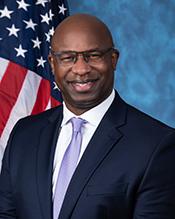0
Green New Deal for Public Schools Act of 2023
12/15/2023, 4:02 PM
Congressional Summary of HR 5784
Green New Deal for Public Schools Act of 2023
This bill provides environmental and educational resources to public elementary and secondary schools and Bureau of Indian Education (BIE) schools.
Specifically, the bill requires the Department of Energy's Office of Energy Efficiency and Renewable Energy to provide climate capital facilities grants to eligible entities (e.g., public schools and BIE schools). Grant recipients must use these funds to construct new, or convert existing facilities into, healthy zero-carbon schools. Healthy zero-carbon school refers to a school with highly energy-efficient facilities that produce or procure sufficient carbon-free and pollution-free renewable energy to meet the school's needs.
The bill directs the Department of Education (ED) to award resource block grants to qualified local educational agencies (LEAs) to hire and retain educators and staff in high-need schools.
ED must award grants to eligible consortia of LEAs for educational equity planning and implementation.
ED must establish the Climate Change Resiliency Program to increase the resiliency of public and BIE schools during climate change-related events, natural disasters, and public health crises. Further, ED must establish a related grant program for state educational agencies. Grant recipients must use these funds for certain activities (e.g., green infrastructure projects).
The bill establishes the Office of Sustainable Schools within ED to (1) administer the resource block grant and educational equity grant programs, and (2) coordinate with specified agencies and the White House Office of Domestic Climate Policy on climate capital facilities grants and the Climate Change Resiliency Program.





